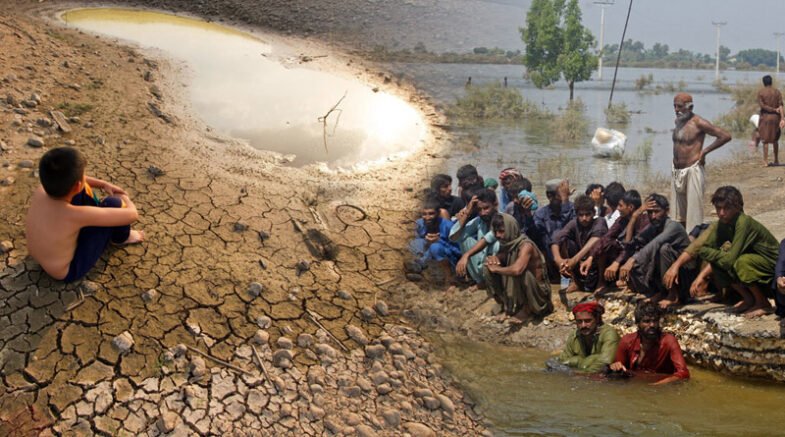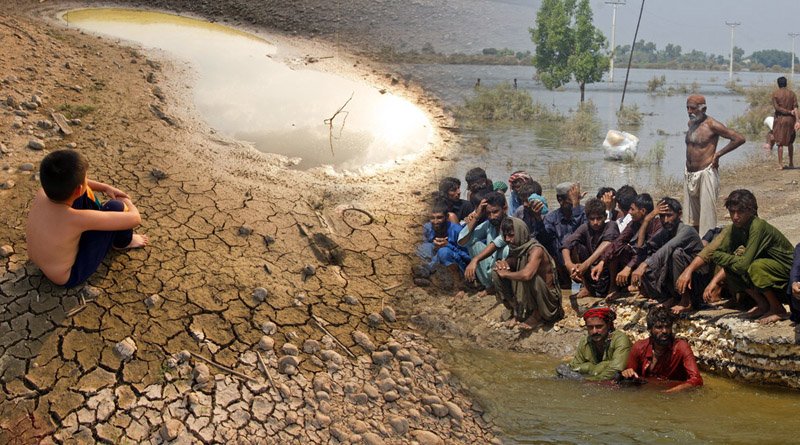Climate change is a global issue that needs to be addressed by increasing production of wheat and barley and adjusting the cropping pattern.

In order to avoid problems for Pakistan’s agriculture, general economy, and populace, the challenge of changing weather conditions must be taken seriously. All crops are currently being impacted by the changing weather pattern, including wheat, cotton, and other crops. To be saved, Pakistan’s agriculture needs the attention of both the government and the populace.
The participants in the Jang Economic Session on “Effects of non-seasonal rains on the agricultural economy- what will happen to wheat and other grains?” expressed these opinions.
Dr. Anjum Ali Butter, DG Agriculture Extension, Rukhsana Zafar, Abdur-Rehman, Dr. Salah-ud-Din Ayubi, and Shahid Abbas participated in the panel, which was moderated by Sikindar Lodhi. According to Dr. Anjum Ali Butter, Pakistan is one of the nations that is being impacted by the global issue of climate change.
Numerous initiatives are being undertaken to reduce environmental pollution because it has altered the pattern of crops. The time of crop sowing has changed on the other side, where water was scarce. This year’s March is filled with many issues.
These issues have gotten worse because of the changing weather conditions in central Punjab, which has created new difficulties for crops. As a result of these rains, more areas and crops are affected in the central region than the south. The season for harvesting wheat is about to begin; farmers should harvest wheat by hand to minimise crop loss and damage. The green economy also requires attention.
Rukhsana Zafar and Abadur-Rehman argued that climate change needs to be taken seriously in Pakistan, as non-seasonal rains have caused huge losses in some areas and less damage in others.
Agriculture needs special attention, drainage system should be improved, small dams and reservoirs should be made instead of big dams, and housing schemes should be discouraged on agricultural areas. Both the public and the government are not serious about climate change.
As wheat was impacted by early rains last year and by late rains this year, the weather has been changing. Along with the damage to the maize, mustard, and bream crops. Since the government already set a low target for wheat, a crop loss of 5% is now extremely significant. Pakistan needs a 10- to 12-year agriculture plan that emphasises environmental concerns.
In order for the next generation to understand these changes, a special chapter on environmental challenges should be included in the school curriculum, and teacher training should receive attention.
According to Dr. Salah-ud-Din Ayubi, understanding alone could solve the complex problem of climate change. We play a very small part in these climate changes, but we are heavily impacted by them. Making a district-level strategy to deal with climate change is necessary because some agricultural areas have been negatively impacted.
The entire economy of Pakistan is reliant on agriculture, which accounts for 20% of GDP. Rural areas currently experience higher food inflation than urban areas.
Climate change is a global issue that needs to be addressed by increasing production of wheat and barley and adjusting the cropping pattern. This year, 42 percent more rain was recorded in Kashmir, Gilgit, Khyber-Pakhtunkhwa, Balochistan, Sindh, and Punjab.
This change of weather patterns affected many crops, including corn and wheat. In the coming days, the temperature may increase due to the change in weather, while the cotton crop will be affected by the increase in temperature.
